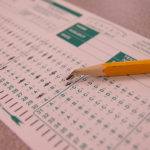Guide to National Youth Science Camp

There are many different opportunities for students to enhance their educational and extracurricular profiles during the summer months, but National Youth Science Camp offers a particularly exciting opportunity for science, technology, engineering, and mathematics (STEM) enthusiasts to spend three weeks out of their summer learning more about STEM fields in the eastern mountains of West Virginia.
The National Youth Science Camp (NYSC) was founded in 1963 by the state of West Virginia, and in 1983, the National Youth Science Foundation (NYSF) established a plan to raise financial support for the operation of the National Youth Science Camp so that more students could experience the program each summer. Since its inception, over 5,000 students from the United States and selected countries have been invited to attend.
If you are a STEM enthusiast looking for a great summer experience, read on to learn more about the National Youth Science Camp program.
What is National Youth Science Camp?
National Youth Science Camp is a 3-week residential program held during the summer, from mid-June through the beginning of July, following your senior year of high school, in the eastern mountains of West Virginia in the Monongahela National Forest. The camp focuses on STEM fields and is recognized as one of the nation’s premier science leadership programs for college-bound students.
The camp helps instill natural scientific curiosity, personal confidence and a sense of responsibility regarding the role of science in society. The program builds liaisons between STEM enthusiasts across the world, while encouraging and motivating young people to pursue careers in the science field.
The NYSC facilities include science laboratories, a computer center, and arts and music studios. The area provides for a unique, natural laboratory for teaching and experimentation, free from the usual distractions of cities and college campuses.
The programs offer challenging opportunities that encourage teamwork and collaborative skills, using science as a common language that allows students to learn from guest presenters, staff, and peers. Scientists from across the nation present hands-on science seminars and interact with student delegates while encouraging them to explore new areas in biological and physical science. Students are also given the opportunity to present seminars covering their own areas of interest and research.
A three-day trip to Washington, D.C. is scheduled to visit some of the nation’s scientific, government, and cultural facilities. Each year, West Virginia’s senior member of the U.S. Senate honors the delegates with a luncheon attended by other members of the Senate.
The program also has expert outdoor staff members, who facilitate programs such as backpacking, rock climbing, caving, mountain biking, and kayaking that help students develop an appreciation of nature as well as valuable leadership and teamwork skills.
What are the goals of NYSC?
- Inspire lifelong engagement and ethical leadership in STEM-related fields.
- Provide learning opportunities in STEM fields that enhance the traditional K-12 school curriculum.
- Develop a network among delegates, staff and STEM professionals.
- Increase awareness and understanding of current research and career opportunities in STEM fields.
- Provide a safe environment for expanding comfort zones with scientific and cultural aspects of the natural world.
What is a typical day at NYSC like?
Each morning begins with a lecture from a visiting scientist. Following the lecture, some groups will depart on various outdoor trips, while the remaining students break into small groups for hands-on, small group science seminars facilitated by guest scientists or NYSC staff.
The afternoon is reserved for seminars, athletic and recreational activities, art, and music. All activities challenge delegates to be creative while encouraging them to try something new.
The evening includes a science lecture followed by dinner and an opportunity to socialize with the other delegates.
What are the eligibility requirements?
- You must be a resident of the U.S., District of Columbia, or a resident of Argentina, Bolivia, Brazil, Chile, Costa Rica, Ecuador, Mexico, or Trinidad and Tobago.
- If you are a resident of the U.S., you must apply during your senior year of high school.
- If you are a resident of Argentina, Bolivia, Brazil, Chile, Costa Rica, Ecuador, Mexico, or Trinidad and Tobago, then you must be between 16 and 18 years old and have strong skills in spoken English. You must also be eligible for a J1 Visa.
- You must have documented, superior academic proficiency in mathematics or the sciences as well as substantial leadership experience through involvement in school and community activities.
- You must have documented achievements outside the realm of STEM fields and outside the realm of academia.
- You must demonstrate curiosity and eagerness to explore various topics.
- You must intend to pursue higher education in a STEM-related field.
How many students does NYSC select and how are they selected?
Two students from every state and Washington, D.C. are selected to attend. In addition, students from other countries are invited to participate in the program, and the number selected from each country varies from year to year.
The governor of each state appoints a selection coordinator who initiates a competitive process to choose two delegates and up to four alternates.
What is the cost of the program?
The National Youth Science Camp is offered at no cost to the participants so that selected delegates may attend regardless of their financial status. All educational and recreational programs — as well as meals, lodging, and round-trip airfare — are included in the program.
The National Youth Science Foundation will arrange round-trip transportation from an airport near the delegate’s home to Charleston, West Virginia.
NYSC is made possible through planning and fundraising by the National Youth Science Foundation, a nonprofit organization whose mission is to honor, sustain, and encourage youth interest in excellence in science.
Where can I find out more about NYSC?
To learn more about NYSC or to apply, please visit this page consisting of quick links and a list of the program’s goals.
There are many different summer opportunities to enhance your education, but NYSC provides a unique and exciting opportunity for students who want to explore careers and opportunities in STEM-related fields. Although the camp revolves around science, there are opportunities for delegates to explore other interests while developing a network with other like-minded people as well as friendships that will last a lifetime.
Don’t just take our word for it!
“When I first arrived in West Virginia for the National Youth Science Camp, I didn’t know what to expect. I remember being picked up from the airport and staying with a lovely host family overnight before taking the bus with 100+ other young scientists to Camp Pocahontas. Little did I know that several of these campers would become my lifelong friends.
We woke up every morning to the Rhododendron Song, engaged in hands-on science activities, and went on weekend camping trips in the surrounding Monongahela National Forest. There were so many magical moments sprinkled throughout my experience at NYSC: sleeping under the stars one evening, a memorable visit to Washington D.C., kayaking down rapids for the first time, learning to belay at a rock climbing session.
I will always look back on my last summer before college fondly. The NYSC is an incredible reward and opportunity for students to join a community of like-minded peers for a few weeks of learning and exploration.”
– Greeshma, 2012 NC delegate
“NYSC was a life-changing experience. Not only because I was introduced to a variety of topics I had never even considered before (experimental economics, eugenics & bioethics), but I have also met some of the best people in my life at this camp. The environment, both because of West Virginia’s natural beauty and the atmosphere created by the camp staph*, is conducive to learning, friendships, and new experiences.”
– Kiona, 2008 AZ delegate
* Not misspelled; this is a traditional NYSC spelling to highlight their infectious enthusiasm
For other summer opportunities and academic programs, check out these great CollegeVine blog posts:
Want access to expert college guidance — for free? When you create your free CollegeVine account, you will find out your real admissions chances, build a best-fit school list, learn how to improve your profile, and get your questions answered by experts and peers—all for free. Sign up for your CollegeVine account today to get a boost on your college journey.
Can't see the form above? Subscribe to our newsletter here.


